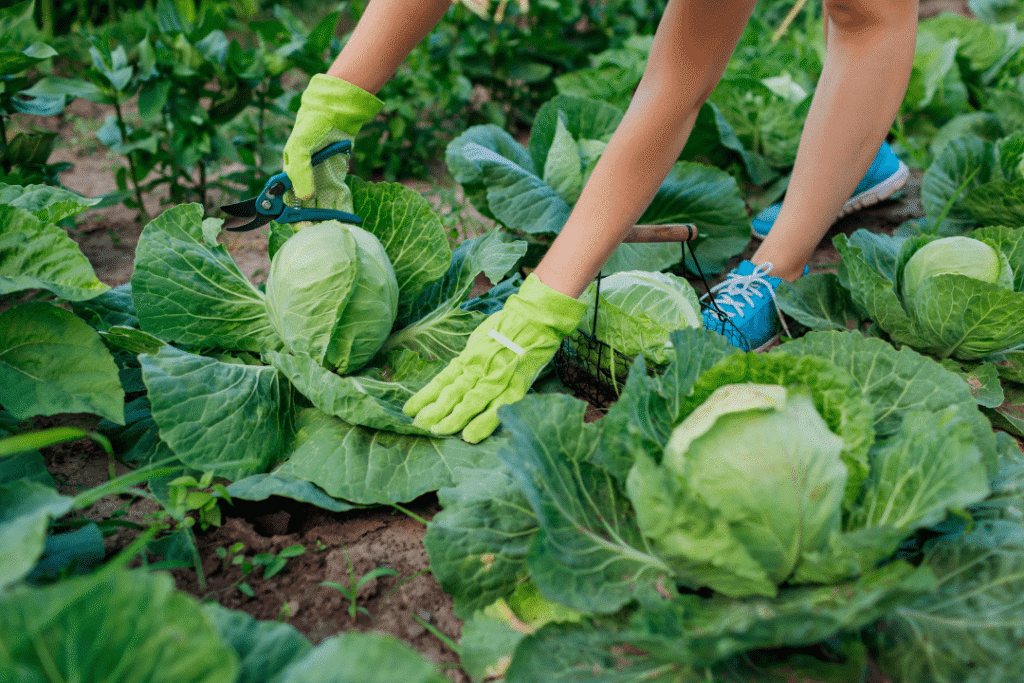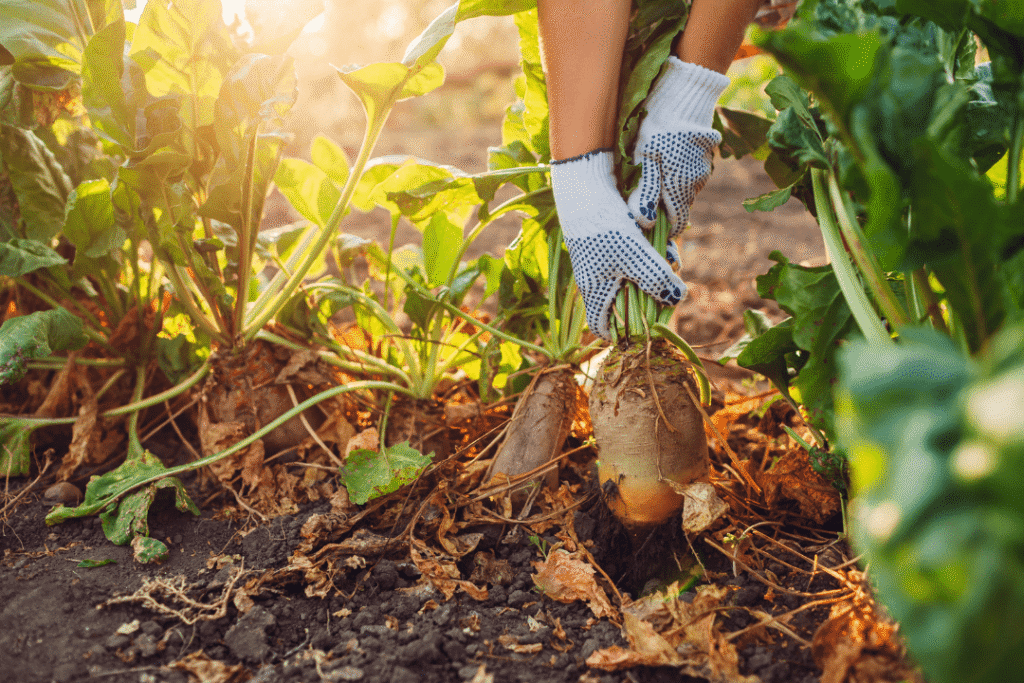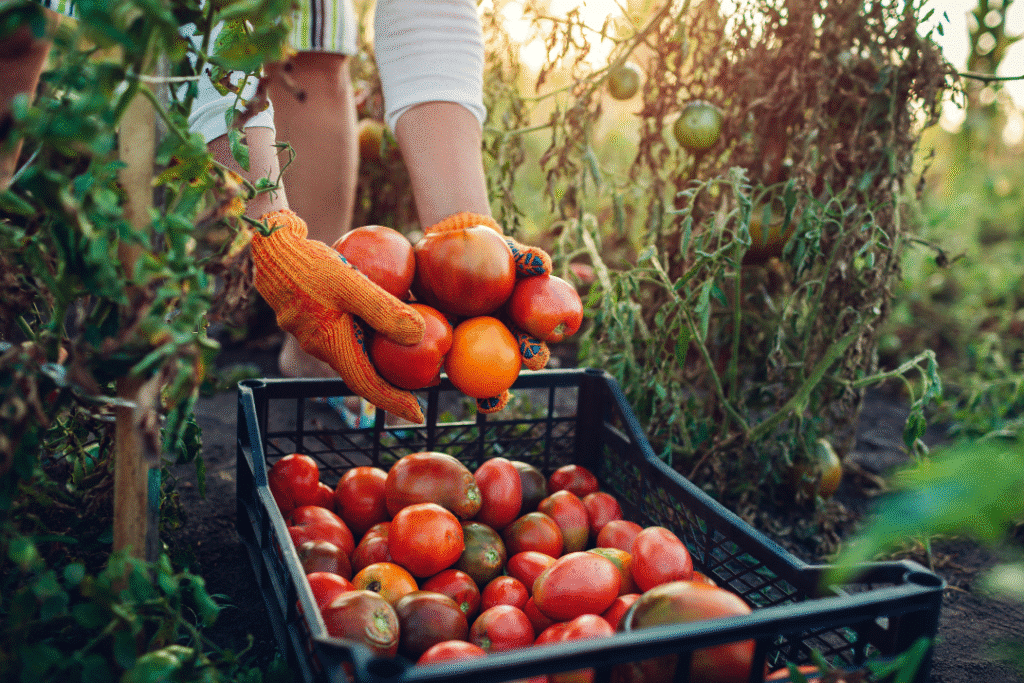Knowing where your produce comes from and how it was grown helps you improve the quality, flavour and sustainability of every dish in your restaurant. One age-old technique that brings all of this and more is crop rotation. Here’s everything you need to know about it, including why chefs are taking notice of this and other sustainable agricultural techniques.
What is crop rotation?
Crop rotation is the practice of planting different crops in sequence on the same land. Rather than growing the same crops in the same place year after year, farmers rotate plant families. For example, from leafy greens to legumes, and then to root vegetables. This approach helps improve soil health, reduce pest populations, and cut down on the need for chemical inputs.
It’s far from a new concept. Crop rotation has been a cornerstone of good crop management for centuries, but it’s experiencing a revival right now as part of regenerative agriculture. With growing concern about climate change, degraded soil, and food quality, a simple technique like crop rotation can make a big difference, not just in the produce you’re buying today, but in the produce the next generation of chefs will be using in their restaurants.
A time-tested technique for healthy soil
Farmers as far back as Roman times understood that growing the same crops repeatedly in the same area depleted nutrients and led to soil loss. So, they began rotating crops to keep soil healthy and encourage nutrients back into the soil.
Medieval farmers refined the method, using a three-field system that allowed one section of land to rest for a harvest while the others were cultivated. Medieval farmers realised that resting the land was just as important as rotating crops, a practice that is seeing increasing usage today.
Now, with support from soil and tillage research, crop rotation is once again being recognised as a key tool in sustainable agriculture. As we face the effects of extreme weather, reduced soil fertility, and increased pressure on farms to produce more with less land, crop rotation helps protect the future of food.

Why is crop rotation so important for sustainable farming?
For the soil:
- Improves nutrient availability and soil structure.
- Enhances water retention and soil organic matter, reducing the impacts of drought.
For the farm:
- Reduces pests and disease pressure by interrupting crop-specific pest life cycles.
- Encourages biodiversity above and below ground, leading to better soil quality and long-term productivity.
For the planet:
- Helps fight climate change through carbon sequestration and reduced tillage.
- Prevents soil erosion and protects ecosystems by keeping living roots in the soil.
Sustainable agriculture relies on practices like rotating crops and planting cover crops to maintain soil fertility and reduce weed problems without the need for chemical fertilisers. These management practices not only benefit the environment, but they also support higher crop yields and better crop productivity over time.
Why should chefs care about crop rotation?
Soil health = flavour quality
Healthy soil grows more nutrient-dense, flavourful produce. For example, tomatoes grown in nitrogen-rich, rotated soil often have more complexity, sweeter highs and acidic lows. Over time, crops growing in degraded soil lose nutrients and character. Crop rotation helps improve soil health and maintain soil organic matter, making a noticeable difference in taste.
Supports local, seasonal sourcing
Farms using crop rotation tend to grow a more diverse range of crops, including annual vegetables, legumes, and perennial crops. This biodiversity supports soil health, of course, but also chefs who cook with the seasons. It gives you access to a more diverse range of crops, allowing you to create seasonal menus with more variety and flavour combinations.
Fewer chemicals, more integrity
Crop rotation reduces the need for synthetic pesticides and fertilisers by naturally suppressing weeds and pests. This means that crops taste richer, making your menus more mouthwatering. So, chefs can feel confident in serving produce grown with less reliance on chemical inputs and with more environmental sustainability built in.
Better for the planet, plate by plate
Sourcing from farms that use crop rotation supports climate-positive agriculture. It promotes soil regeneration, improves soil conditions, and protects against soil loss. All of which are vital in the face of climate change. It’s a powerful way to bring sustainable values to your kitchen.

The taste test
Recently, we took a trip to Coal Office, an incredible Middle Eastern restaurant in Kings Cross, London to speak with the Head Chef, Dan Pelles. The restaurant makes everything fresh, and the smell of fresh bread hits you right as you enter the door. It’s incredible. While there, Dan ran us through making their Nablus Salad. Its vibrant play on flavour is as delightful as the fresh, sustainable produce used to build it. It’s packed full of nutrients (and chilis) and is one of our favourite dishes in London.
Check out the Nablus Salad Recipe by Coal Office here if you’d like to make one yourself (you’ll be glad you did).
Get the best fresh fruit and veg for your restaurant and recipes
Crop rotation is about growing better ingredients from the ground up. It’s about farmers taking pride in what they are growing and protecting the land for the future. For chefs, that means flavour, integrity, and a more sustainable plate.
We take great pride in working with farmers in the UK and Europe who practice sustainable agriculture and use crop rotation to protect their land and the planet for the future. It means that our customers get the best fruit and vegetables for their restaurants and support farmers doing great things for the environment.
Become a customer of All Greens today and start sourcing fruit and veg that’s as good for the planet as it is for your menu.


